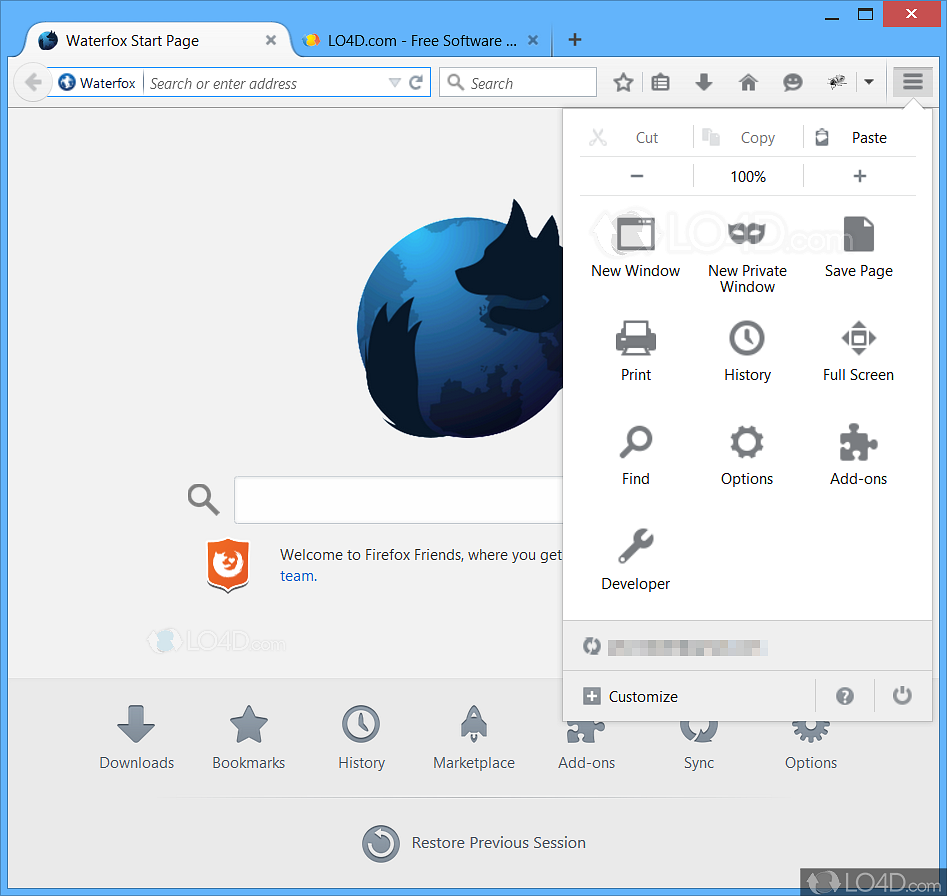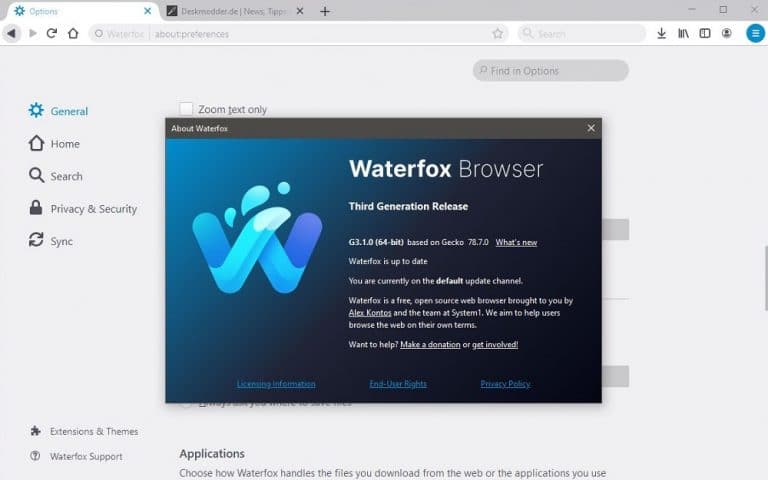

- #2019 LATEST WATERFOX BROWSER SOFTWARE#
- #2019 LATEST WATERFOX BROWSER LICENSE#
- #2019 LATEST WATERFOX BROWSER DOWNLOAD#
- #2019 LATEST WATERFOX BROWSER FREE#
In addition, the software requires at least version 2.28 of the GLib library.įirst unpack the archive. These SSE3 extensions are offered by almost all full-fledged Intel and AMD processors for desktop and mobile computers from Pentium 4 upward.
#2019 LATEST WATERFOX BROWSER FREE#
The hardware environment the developers say you need is 512MB RAM, 200MB free space on disk, and a processor with SSE3 capabilities. They weigh in at around 58MB (Current) and 88MB (Classic). While the Current version implements new technologies and is therefore more suitable for fans of bleeding edge software, the Classic version uses older browser technologies, including support for NPAPI plugins.Īnother difference between the two versions is that the project actively develops the Current version, while the Classic browser is only given regular updates to fix bugs and plug vulnerabilities.īoth variants are available as tarballs for 64-bit architectures. The project is now testing tracking against the central branch of the Gecko platform instead of the ESR branch, which (if it goes smoothly) means the project will become effectively a rolling release. But it also means there’s parity of landed bug fixes, as well as future bugfixes (which are easy for the project to digest thanks to a new CI build system). This means it lags behind Firefox proper in terms of new features, since those generally have to wait before they land in the ESR. We won’t say much more about Waterfox Classic, other than it’s hard to backport security fixes from modern Firefox into the old codebase (it’s based on Firefox 56) so if you visit you’ll see a warning that it has “many unpatched security advisories”. The other branch, now just known as Waterfox because it’s where development is focused, is based on the Firefox ESR (Extended Support Release), currently 91.
#2019 LATEST WATERFOX BROWSER DOWNLOAD#
Two versions of Waterfox are available for download from the project website, Waterfox Current and Waterfox Classic. Waterfox also lets you continue using NPAPI plugins that Firefox has not supported for a long time. Waterfox is a fork of the Mozilla browser that claims to have removed all unnecessary elements from the software, especially unnecessary data collection. Coupon: LOVEMOM.Īll of this makes Waterfox an interesting alternative.
#2019 LATEST WATERFOX BROWSER LICENSE#
Deal: 10% off for Parallels Desktop (full license & 1st year of subscriptions only).You can support the site directly via Paypal donations ☕. TNR earns Amazon affiliate commissions from qualifying purchases.

Also consider that for many privacy-conscious users, Chrome or Chromium are not an alternative because of the integration of many Google services with these browsers. The integration of services such as Pocket, interface changes, and the fact that telemetry data are collected have left many users concerned about their privacy and feeling restricted in terms of usage options. When in 2019 the Quantum revolution came, Waterfox bifurcated into Classic and Current branches, with the Current branch continuing to focus on modern Firefox (WebExtensions and all), and the Classic branch catering to the XUL platform. As such, a number of Firefox forks and clones sprang up to keep XUL and classic add-ons alive: Pale Moon and Basilisk, for example.Īn even older edition was Waterfox by Alex Kontos, which started life in 2011 as a 64-bit custom Firefox build, at a time when Mozilla offered only 32-bit downloads. Such changes have their detractors, including, we dare say, the authors of the tens of thousands of addons that were broken by this change. XUL (and XPCOM, Mozilla’s bridge between C++ and JavaScript) gave a vibrancy to the Firefox add-on ecosystem, but given the security implications it was axed in favour of the new WebExtensions mechanism. The XUL architecture was powerful, perhaps too powerful since it enabled add-ons to do pretty much anything they wanted, including to other add-ons, the browser core or even the underlying operating system. Firefox 57 (Quantum) brought a new look, a newly engineered browser engine and a new add-on architecture to replace the venerable XUL (XML User Interface Language).

NPAPI plugins were all but banished in 2017 when Firefox 52 was released. Firefox has changed a lot over the past few years. Firefox also lost some of its popularity because of changes to the browser.


 0 kommentar(er)
0 kommentar(er)
